Table of Contents
- What Is Chile Cambray?
- Flavor Profile & Heat Level
- How Does It Compare to Other Chiles?
- How to Use Chile Cambray in Cooking
- Buying Guide: Finding the Best Chile Cambray
- Storage Tips for Maximum Freshness
- Frequently Asked Questions
- Conclusion: Spice Up Your Life with Chile Cambray
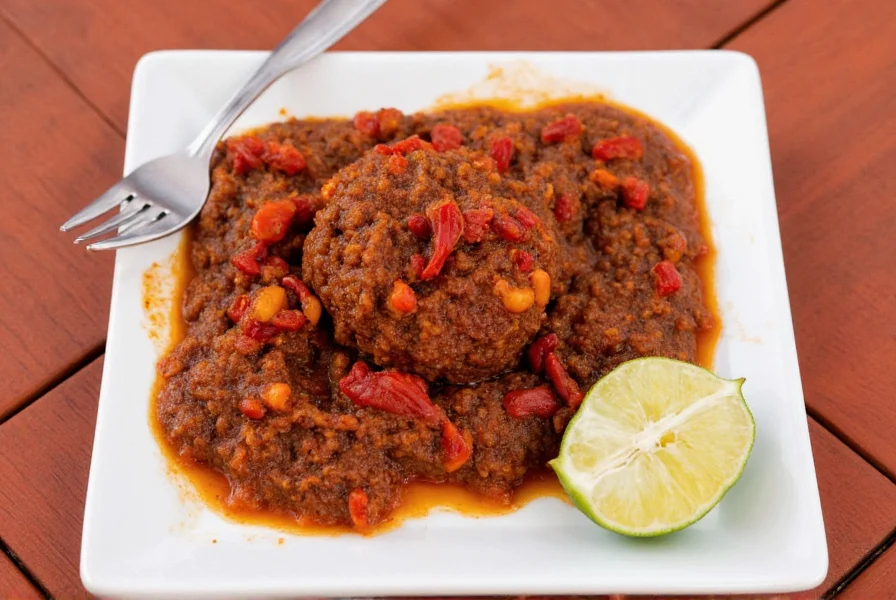
What Is Chile Cambray?
Chile Cambray, also known as Piquín chile, is a small, wild-growing pepper native to Mexico's central and southern regions. It packs a heat level of 30,000–60,000 Scoville Heat Units (SHU) and is prized for its complex smoky, citrusy flavor with hints of dried fruit. This versatile pepper is a staple in traditional Mexican cuisine, used in salsas, moles, and more.
Flavor Profile & Heat Level
Chile Cambray measures between 30,000–60,000 Scoville Heat Units (SHU), placing it comfortably above jalapeños (2,500–8,000 SHU) and slightly below habaneros (100,000–350,000 SHU). Its flavor stands out with smoky, grassy, peppery notes and subtle hints of citrus and dried fruit. When dried and toasted, it develops intense concentration and aromatic depth.
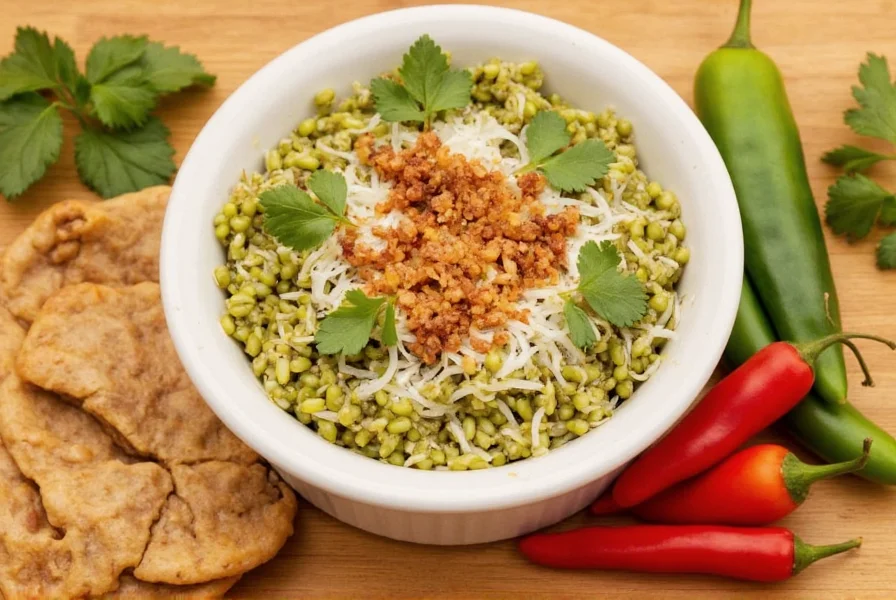
- Heat Level: Medium to high
- Flavor Notes: Smoky, grassy, peppery, with hints of citrus and dried fruit
- Texture: Crisp when fresh; intensely concentrated when dried
How Does It Compare to Other Chiles?
| Pepper | Heat (SHU) | Flavor Profile | Best Used In |
|---|---|---|---|
| Chile Cambray | 30,000–60,000 | Smoky, citrusy, peppery | Salsas, moles, stews, spice blends |
| Jalapeño | 2,500–8,000 | Grassy, vegetal | Salsas, nachos, poppers |
| Habanero | 100,000–350,000 | Fruity, floral | Hot sauces, Caribbean dishes |
| Ancho | 1,000–2,000 | Earthy, sweet, raisin-like | Mole, soups, enchiladas |
| Guajillo | 2,500–5,000 | Berry-like, tangy | Rubbed meats, adobo sauces |
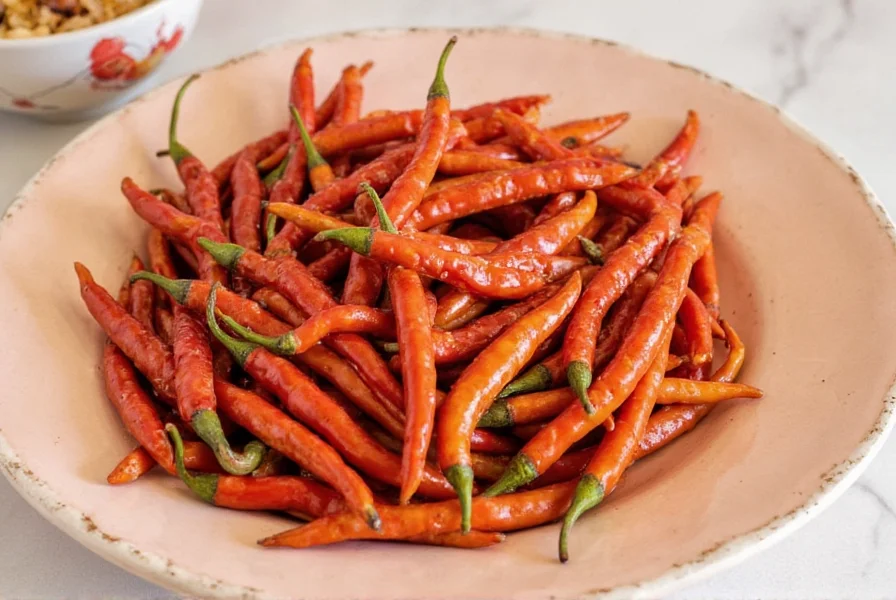
For a balanced heat with smoky depth, Chile Cambray outperforms guajillo while offering less fruity intensity than habanero.
How to Use Chile Cambray in Cooking
Chile Cambray is versatile in both fresh and dried forms. Here are expert-approved ways to incorporate it:
- Dried and Ground: Toast whole pods in a dry skillet until fragrant, then grind into powder. Ideal for mole, chili rubs, or sprinkling over tacos.
- In Salsas: Blend roasted tomatoes, garlic, onion, and dried chiles for a rich, smoky salsa that elevates standard versions.
- Oil Infusion: Simmer dried chiles in olive oil for an aromatic, spicy oil perfect for grilled vegetables or seafood.
- Cocktails: Rim glasses with chile powder and lime zest for a spicy margarita twist.
- Meat Rubs: Combine with cumin, coriander, garlic powder, and salt for a bold rub on chicken or pork.
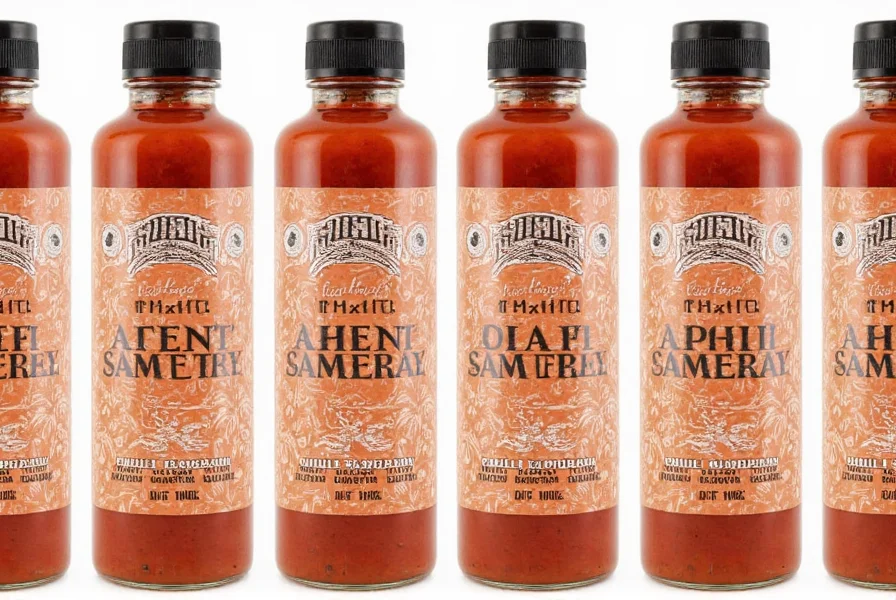
Pro Tip: Always toast dried pods first to unlock complex aromatics and reduce bitterness.
Buying Guide: Finding the Best Chile Cambray
When selecting Chile Cambray, prioritize these quality indicators:
- Color: Look for vibrant red or dark burgundy pods; avoid dull or discolored ones.
- Texture: Dried pods should be pliable, not brittle or crumbly.
- Origin: Mexican-grown chiles typically offer superior quality; verify country of origin on packaging.
- Preservatives: Choose products without added preservatives unless specified for shelf life.
- Quantity: Start with small batches if new to Chile Cambray to ensure freshness and avoid waste.
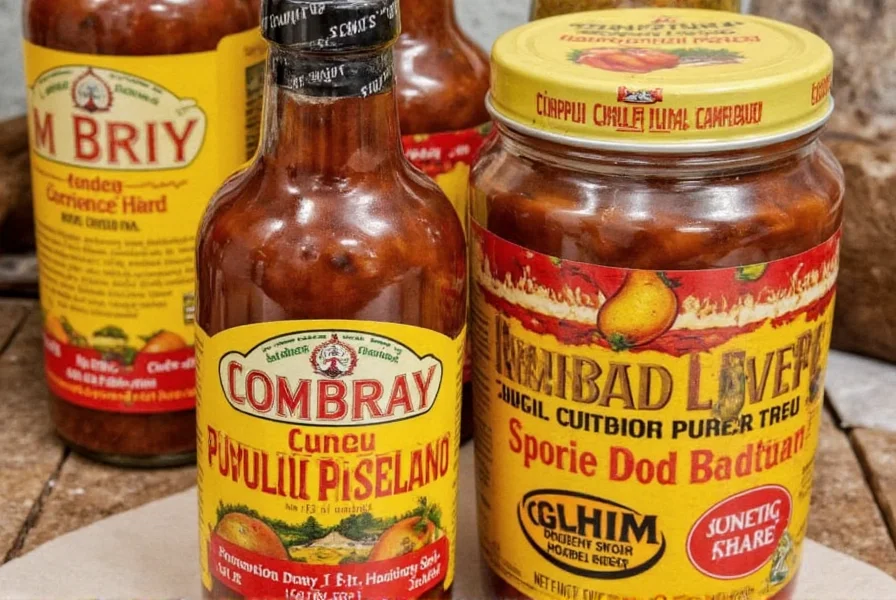
Storage Tips for Maximum Freshness
Proper storage preserves flavor and potency:
- Dried Pods: Store in an airtight container away from light and moisture; lasts up to 1 year.
- Ground Powder: Keep in a cool, dark place; exposure to air reduces potency over time.
- Infused Oil: Refrigerate and use within 2 weeks for safety and optimal flavor.
- Homemade Blends: Label containers with date and ingredients for easy tracking.
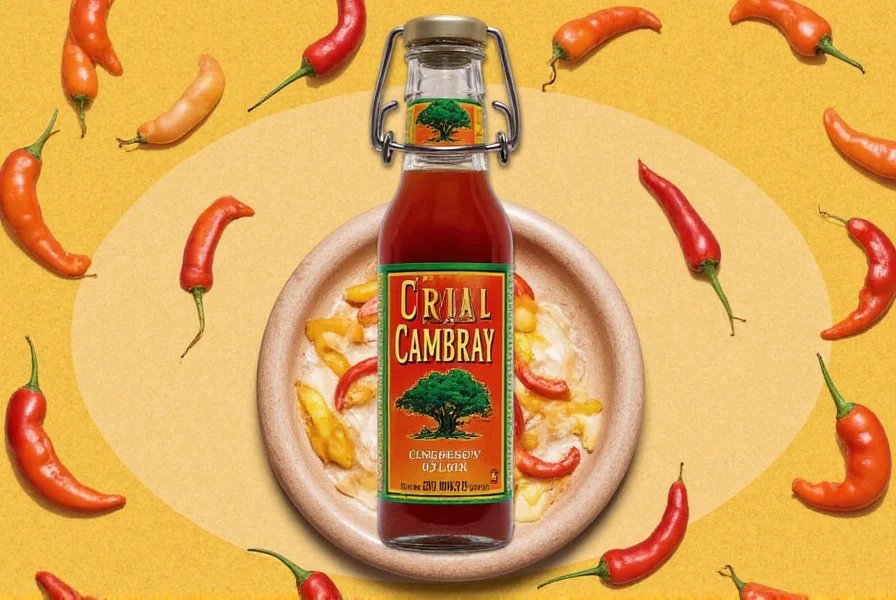
Frequently Asked Questions About Chile Cambray
What is Chile Cambray?
Chile Cambray, also known as Piquín chile, is a small, wild-growing pepper native to Mexico's central and southern regions. Despite its French-sounding name, it's a staple in traditional Mexican cuisine known for its intense heat and complex flavor profile.
How hot is Chile Cambray?
Chile Cambray measures between 30,000-60,000 Scoville Heat Units (SHU), making it significantly hotter than jalapeños (2,500-8,000 SHU) but milder than habaneros (100,000-350,000 SHU). It delivers medium to high heat with excellent flavor complexity.
What does Chile Cambray taste like?
Chile Cambray offers a complex flavor profile with smoky, grassy, and peppery notes, complemented by hints of citrus and dried fruit. When dried and toasted, it develops an intensely concentrated, aromatic quality that enhances many dishes.
How do you use Chile Cambray in cooking?
Chile Cambray can be used dried or fresh. Common preparations include toasting and grinding into powder for spice blends, adding to salsas, infusing in oils, using in meat rubs, or incorporating into cocktails. Toasting before use unlocks its full flavor potential.
Where can I buy Chile Cambray?
You can find Chile Cambray at specialty Latin markets, Mexican grocery stores, or online retailers. Look for vibrant red or dark burgundy pods that are pliable (not brittle) and check for Mexican origin for the best quality. It's available as whole dried pods, ground powder, or in spice blends.
How should I store Chile Cambray?
Store dried Chile Cambray pods in an airtight container away from light and moisture, where they'll last up to a year. Ground powder should be kept in a cool, dark place. Chile-infused oils should be refrigerated and used within 2 weeks for best flavor and safety.
What can I substitute for Chile Cambray?
If you can't find Chile Cambray, a combination of cayenne pepper and a small amount of chipotle powder can provide a similar heat level and smoky flavor. Thai bird chilies or pequín peppers are also good alternatives, though they may vary in exact flavor profile.
Is Chile Cambray the same as Piquin pepper?
Yes, Chile Cambray is the same as Piquín pepper (sometimes spelled Piquin). It's a small, wild-growing Mexican chili that goes by several names including Chile Bravado, Chile Pequin, and Bird's Eye chili in some regions.
Conclusion: Spice Up Your Life with Chile Cambray
Whether you're a seasoned chef or a home cook exploring bold flavors, Chile Cambray deserves a place in your kitchen. Its unique smoky-citrus profile and versatile heat make it ideal for salsas, spice rubs, and cocktails—transforming ordinary meals into extraordinary experiences.
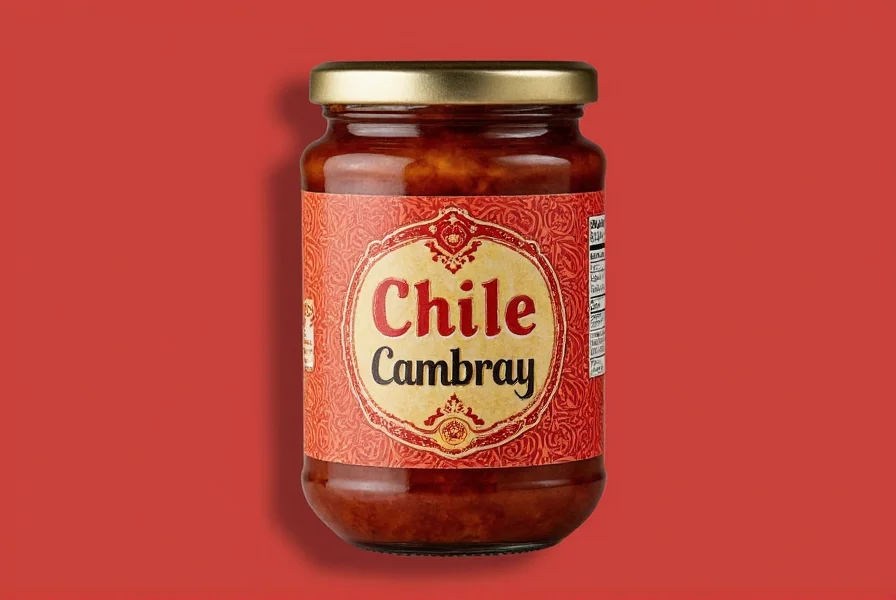
Embrace the fire of Chile Cambray and elevate your culinary creations with confidence.

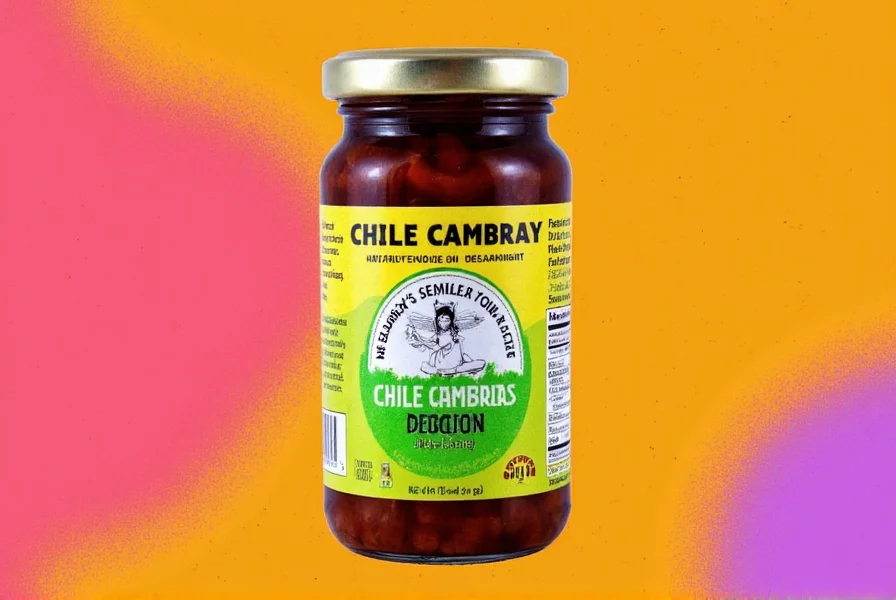









 浙公网安备
33010002000092号
浙公网安备
33010002000092号 浙B2-20120091-4
浙B2-20120091-4